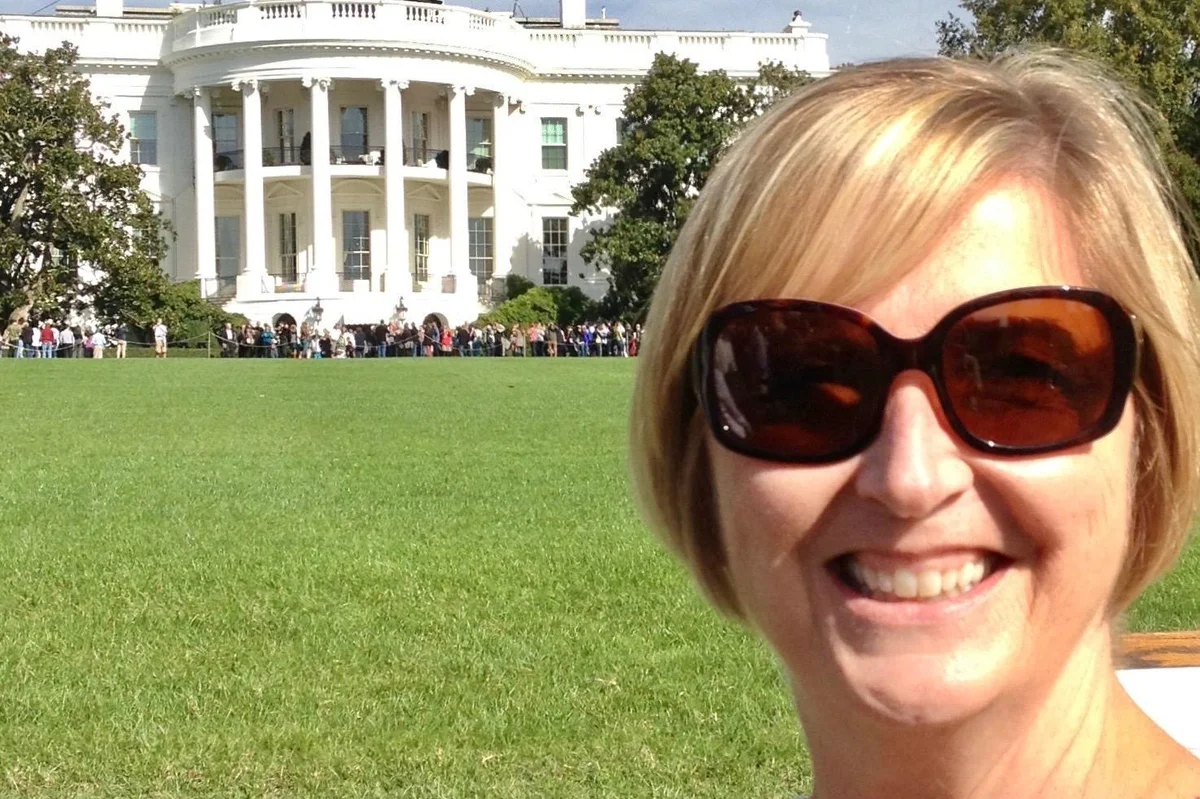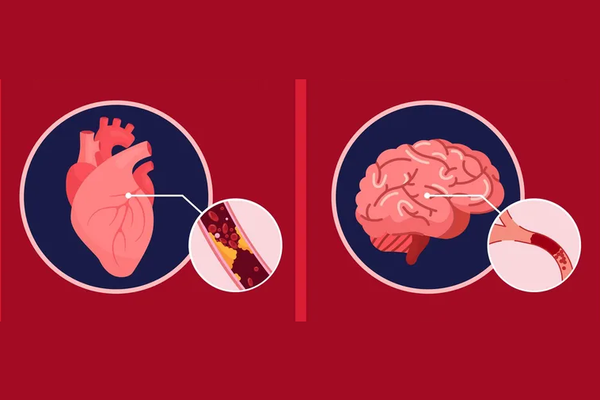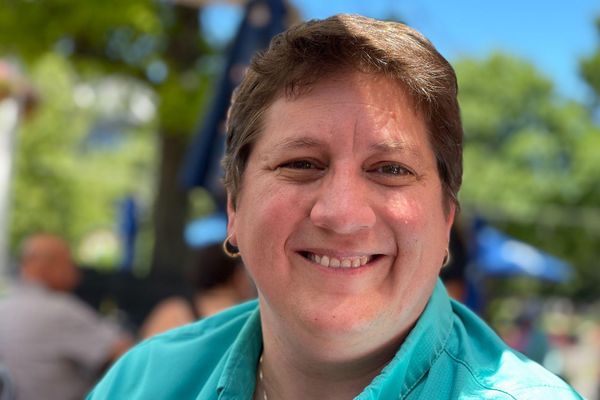As told to Jacquelyne Froeber
I felt the first real symptoms on Christmas Day. I was walking our family dog uphill through the neighborhood when I felt a strange tightness in my chest. “That’s weird,” I thought. I noticed I was slightly out of breath, too.
By the time I got home, the tightness was gone and my breathing was normal, but I told my husband that the episode didn’t feel quite right. Heart problems run in my family — my father had three heart attacks before he died of a fourth at age 62. Still, I wasn’t too concerned. I’d had a stress test the year before and everything was normal. I was also on blood pressure and cholesterol-lowering medications.
Even so, my husband and I agreed that I should schedule an appointment with my healthcare provider (HCP) after the holidays. Probably. When I had time.
Over the next few days, I noticed the tightening in my chest during routine tasks like taking the stairs or walking up a slight incline. My daughter was 12 years old at the time and pneumonia was going around her school. Maybe I caught something at one of her many school events?
I was also working as the entertainment editor for USA Weekend magazine, so I was always on the go — but I certainly didn’t want to get anyone sick. When I told my HCP my symptoms, she stopped mid-stethoscope and looked me right in the eyes. “I don’t like this, Lorrie,” she said. “Let’s schedule a stress test right now.”
I reluctantly arrived at the facility for the stress test the next day. I was on the treadmill for barely two minutes before the cardiologist's assistant was scheduling me for an angiogram — a scan to see the blood flow through the heart. Something was wrong. And it wasn’t pneumonia.
The very next morning I had the scan in a nearby hospital, and the cardiologist I’d met only the day before walked into the room to inform me that I had blockage in all four major arteries of the heart. To restore blood flow, he said, I would need a coronary artery bypass operation immediately. And let’s just say his bedside manner needed work.
I was surprised. “This is ridiculous,” I said. I told him that I was a reporter by trade and I wasn’t just going to have invasive, open-heart surgery just because he said so. I wanted a second opinion. He abruptly left the room and returned with a colleague who — his warmer bedside manner notwithstanding — said the same thing: I should schedule the surgery as soon as possible.
I went home without scheduling the surgery. Looking back, I was definitely in shock. How was I going to make this huge decision on the spot? I needed to talk to my husband. I knew what was at stake given my family history, but I also knew that bypass surgery is no joke: In order to create a new path for blood to flow around blocked arteries, the surgeon has to make a long incision down the chest and open the rib cage to the heart. I was only 48 years old. This couldn’t be my only option.
By the time I was home, the cardiologist had left me a message about scheduling the surgery. I sent my test results to my cousin who’s a medical professional and talked about the procedure with my husband. We decided to wait to see what my cousin recommended before moving forward.
The following morning, the cardiologist called again. And then again. When he called a third time, I picked up the phone: “Why do you keep calling me?”
“Because you’re going to have a heart attack if you don’t have this surgery,” he said.
I sighed. I knew in my heart (pun intended) that he was right. “Fine,” I said. “But I want to meet the surgeon before the procedure.”
He scoffed on the other end of the phone — many patients don’t actually meet their surgeon before operation day — but he set up the meeting. The surgeon was a woman — her name was Mercedes — and I instantly felt at ease knowing my heart was in her hands. At the time of my surgery, research about heart procedures for women wasn’t where it is today. I didn’t personally know any women who’d had heart surgery. I did have a male coworker who said he waited six weeks before going back to work. I took 12 weeks off from work just to be on the safe side, and I was barely recovered by then. For months, my chest ached and I longed to do simple things like carry a grocery bag in from the car.
Because my seven-hour surgery was done off-pump, meaning my heart did not go on a heart-lung machine during the operation, the risk of memory or other neurological problems was limited. As I recovered, I did sometimes feel like I was literally in the clouds and my memory was spotty. It took me an entire year — until that following holiday season — to feel fully present and like myself again. But looking back, that year was just a blip in my wonderful life. Today, 21 years later, my scans show no signs of blockage and I am beyond grateful for the persistence of the medical staff responsible for the procedure. It’s easy to ignore the symptoms, but it’s so important to listen to your heart.
Have a Real Woman, Real Stories of your own you want to share? Let us know.
Our Real Women, Real Stories are the authentic experiences of real-life women. The views, opinions and experiences shared in these stories are not endorsed by HealthyWomen and do not necessarily reflect the official policy or position of HealthyWomen.
- Cardiovascular Disease 2023 - HealthyWomen ›
- Heart Health 2023 - HealthyWomen ›
- Heart Disease 2023 - HealthyWomen ›
- I Thought I Had the Flu, But I Actually Had Heart Failure - HealthyWomen ›







